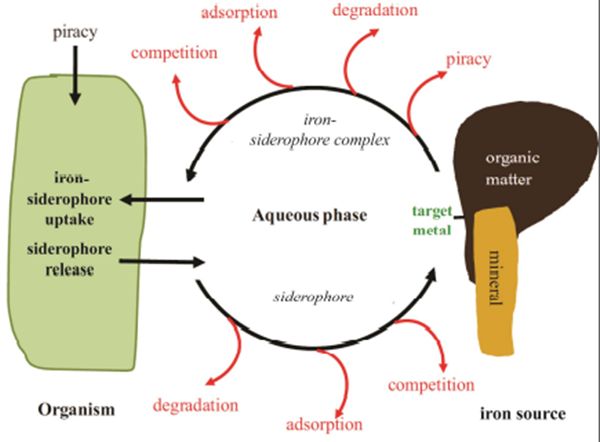Iron is an important nutrient for plant and crop growth. Hence, critical for food security and human health. Bioavailability of iron is influenced by biological, chemical, and physical processes that occur in soil. Siderophores, small molecule compounds and chelating agents produced by fungi, bacteria, and graminaceous plants, play critical roles in the acquisition of iron and other trace metals for uptake by microbes and plants, and are essential to proper plant nutrition as well as the maintenance of soil quality and the suppression of pathogenic microorganisms. Despite a good number of studies on siderophore biology, there is poor understanding as to what happens with siderophores after they are secreted. The aim is to study each disruptive interaction and understand the role each play in the fate of both free siderophore and Fe(III)-siderophore complexes to help improve crop growth and yield.

